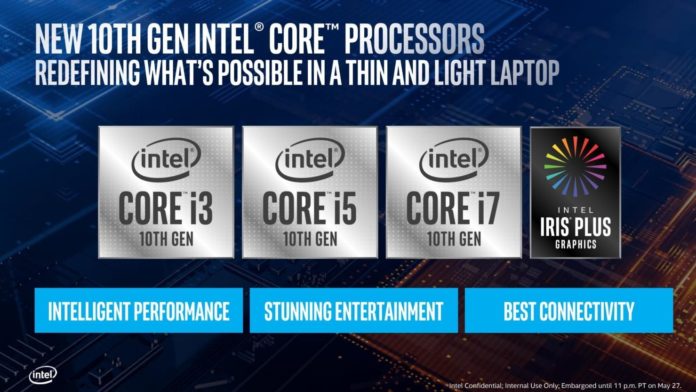An internal Intel document, meant for employees’ eyes only has been leaked and it reveals that team blue is actually quite wary of AMD and its new 7nm, Zen 2 architecture. In a post shared to Reddit which looks like AMD’s competitive profile compiled by its arch-rival, goes by the title, “AMD competitive profile: Where we go-toe-toe, why they are resurgent, which chips of ours beat theirs “.
This file basically summarizes what we’ve been seeing in the CPU market lately, and clearly contradicts Intel’s public view of the Zen microarchitecture. Although it’s not all dark and dreary and paints a rosy picture of the future, it does highlight a resurgent AMD and for the first time in almost a decade calls team red a “formidable threat”.

For starters, let’s go over what Intel considers as its “secret sauce”. Dubbing them as the “six pillars of innovation”, namely process architecture, memory, interconnect, security and software, looks like these six areas are going to be prime focus in the coming years. A bit ironic considering that Intel has been stuck on the 14nm node for the last five years and die-interconnect was popularized by AMD, and the the company very clearly downplayed it, though the attitude has changed after Ryzen ate through a significant portion of the company’s share.
Now, for the bad news. Intel seems to be especially concerned about the HPC and HEDT space, where core counts and memory channels play a leading role. There’s also a mention of the 7nm Matisse and Rome server processors, and are being termed as the “most competitive products in a decade”. Lastly, bringing Intel’s own process disadvantage into the light, TSMC’s 7nm node is discussed and sighted as one of the leading causes of increased competition.

However, Intel considers the notebook and professional PC space as its own turf, not surprising considering that AMD doesn’t have many offerings here as of now, but I expect that to change with Zen 2.
And then surprisingly, the company admits that AMD offers better multi-threaded performance compared to Intel’s 9th Gen Coffee Lake lineup (although it seems adamant that the single-threaded lead will continue). It also expects the Xeon products to be disadvantaged against the Epyc Rome processors in throughput-oriented benchmarks but calls out the former’s lead in memory latency-sensitive applications that require faster response times.
There’s another rather unsurprising remark regarding Cinebench which favors high core counts and as a result AMD processors. Once again, there’s that stress on “real-world” benchmarks. Also, it seems like media outlet, PCPerspective has close toes with Intel (I’ll leave the speculations to you). Given that one of their people joined Intel quite recently, not that hard to imagine.
Related: AMD: EPYC Rome will Double our Server CPU Share, Intel on the Run
Lastly, there is a reminder of how Intel still has a lot of offer in the form of Project Athena, the Xe graphics cards and so on. In the end, the report also stresses employees to “listen to customers as it’ll improve their competitiveness”. A bit surprising but a very valid point. The whole document is as follows. Read away:

Further Reading:
NVIDIA GeForce RTX 2080 Faster than Titan Xp, 11 TOPs of Performance



I am looking for the image and it’s deleted!
Intel is so full if shit!. Until they acquired Digital they could not even make processors that ran reliably beyond 225 MHz. Were still stuck with old ISA mobo architecture. Could not even create a chipset bios that ran reliably without 2 and 3 updates over more than a year. AMD may have improved but are still a hig liability. Neither of the 2 have proper execution of USB 2 or USB 3. All I can say is just can’t wait for Microsoft to release a full fledged Windows running on ARM and VIA creating a good chipset for it AND ASUS building a motherboard.